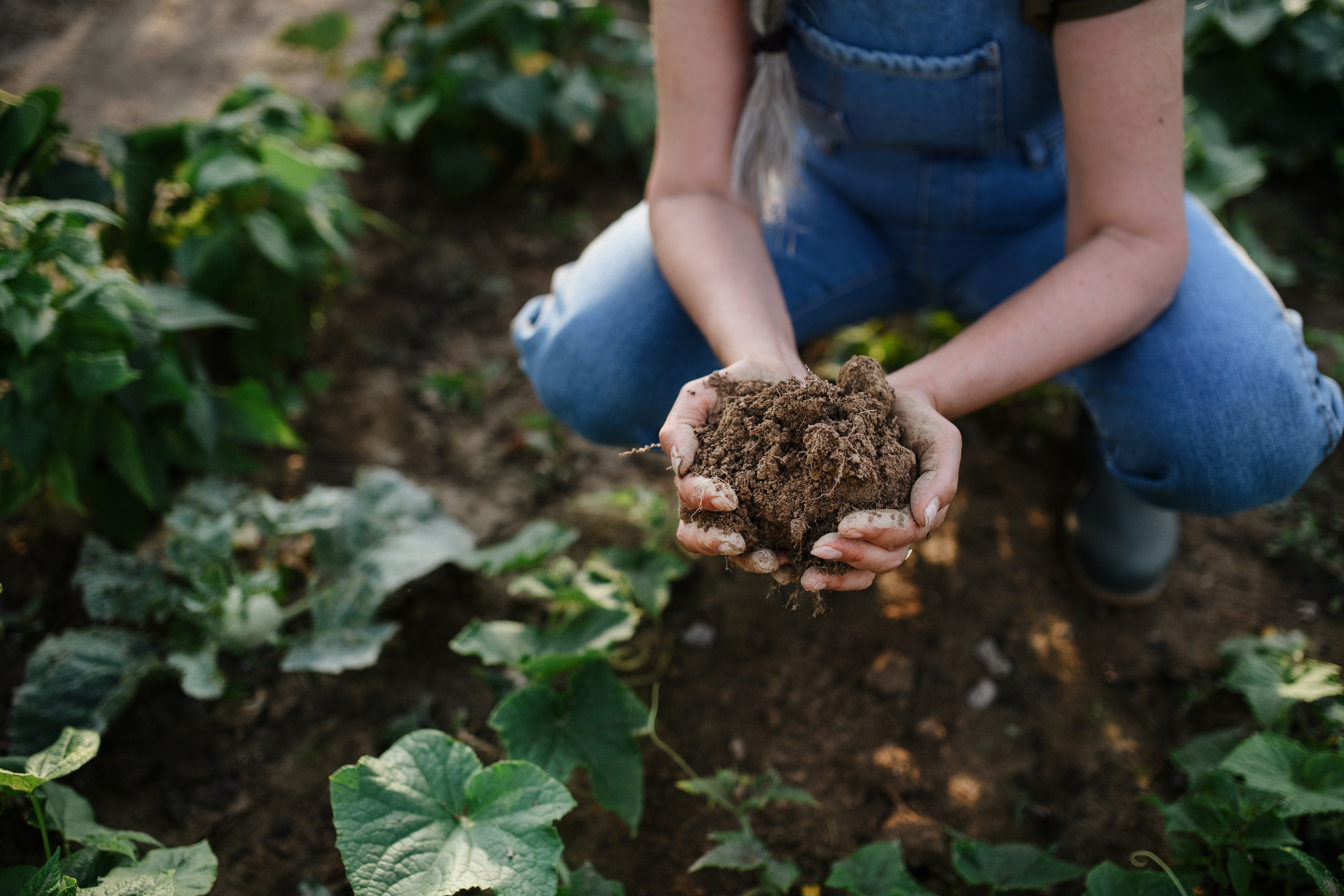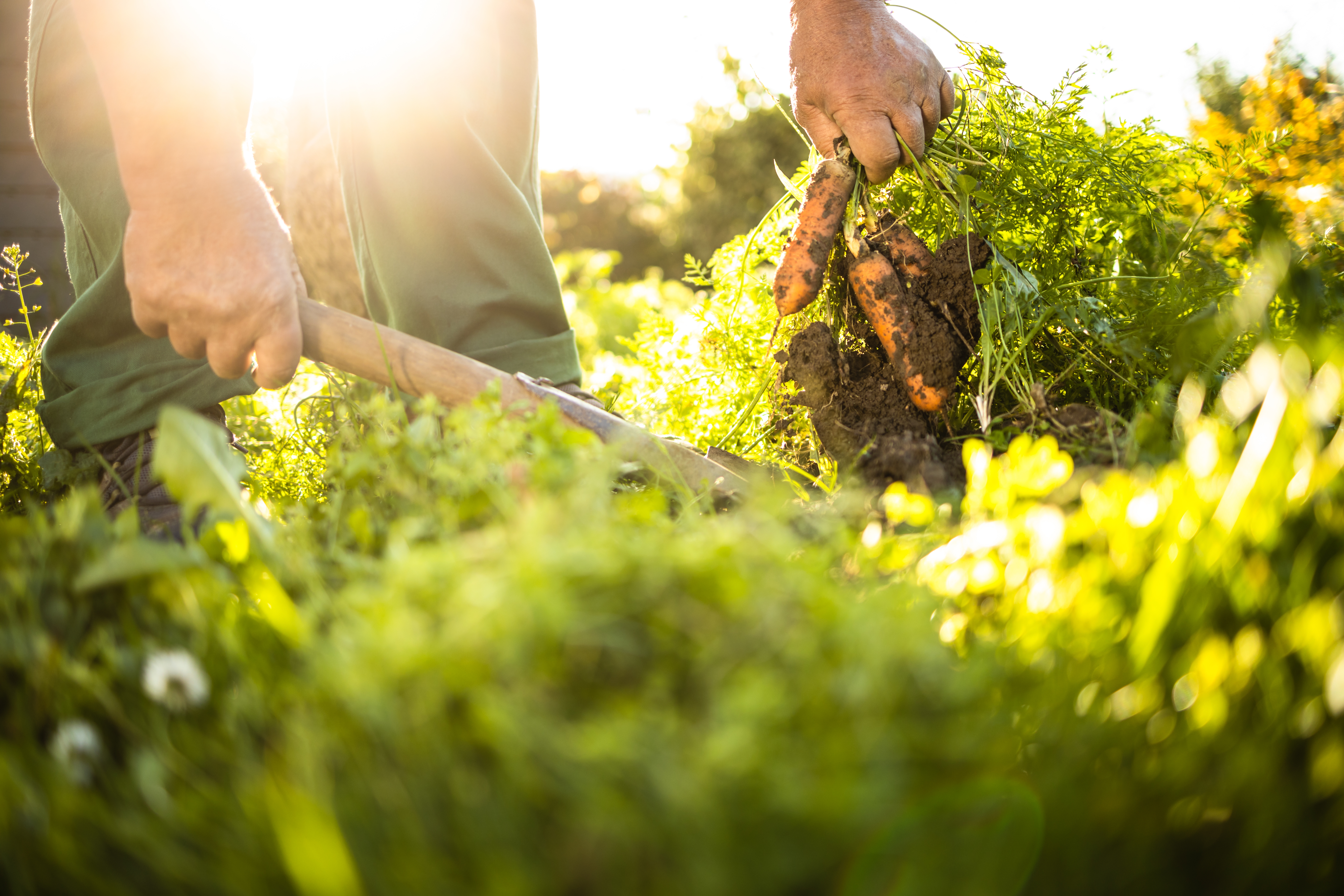Free digital copy
Get Speciality Food magazine delivered to your inbox FREE
Get your free copy
“Had I known that regenerative agriculture was going to come along, I would have said ‘I’m going to be regenerative, aiming to be organic’ rather than full organic,” says William Kendall.
This is certainly an interesting perspective from someone who has been involved in the organic movement for nearly three decades.
William, who has a broad take on Britain’s food and drink industry, being both a farmer, and a key player in businesses such as Cawston Press, is not alone in his thoughts though. As Penny Fagle, founder of the new Organic Cheesemakers Network recently said, consumers are questioning the value of organic, which is leading producers (especially those in dairy) to consider whether it’s worth certifying, or putting their efforts into working in a different way.
William and his wife Miranda decided to dedicate their land at Maple Farm to organic methods when they set roots 25 years ago. It was something they felt (and still feel) very passionate about. At the time William had just bought Green & Black with colleagues, and there was an element of having to ‘practice what you preach’.
“Organic was really taking off the UK at the time. I was slightly embarrassed that I wasn’t organic farming,” he admits. “The only evidence back then that it was better was that it was good for biodiversity, and there were quick response times when you stopped using inorganic fertiliser. You got the bird life back, and the wildlife back. We like selling things, and felt the organic seal of approval gave us an opportunity to talk about what we were doing, and to not just be commodity farmers. Organic is the gold standard of farming. It doesn’t have all the answers, but it definitely does have a few of them.”

Times they are a changing
The organic movement has, says William, grown from a tiny niche to a significant minority within mainstream food and drink offerings. Organic products are still not, he believes, as widely available as they should be, largely due to consumer perception, fuelled by supermarkets – which are, of course, where the majority of the British public load up their trollies.
“Often organic is seen as a way of charging a premium to affluent shoppers, and the expectation is organic is expensive. It doesn’t need to be. There is more organic food available now than there was a generation ago.”
There are lots of brands he says, such as Green & Black’s, Yeo Valley and Godminster, that have built their entire business around being organic, but the ‘sustainable message’ has in many ways overtaken the conversation – all while manufacturers, buyers, retailers and consumers try to really pin down what ‘sustainable’ means today.
And this is an area where he’s seen the largest shift in the multiples driving change. “Cawston Press are a big supplier to supermarkets, and we are incredibly under pressure to reduce carbon emissions and to explain how we are doing more and more to benefit the planet rather than damage it. I know supermarkets are driving this across the supply base. Some argue it’s not fast enough, but they are doing it!”
It’s going to take more than encouraging business to work greener, to get shoppers to vote with their feet though.
More people than ever before are aware of the need to be environmentally mindful, but William’s experience is that end consumers don’t tend to put all their eggs into one basket in this regard. “They buy stuff because it’s delicious and it’s good for their families. Thinking about nutrient density and potential chemical contamination – I think this is much more where consumer interest is going to come from.” People worry about what they’re eating, he says. “The fact something was produced with renewable energy has to be a good thing, but for some, that won’t be enough.”
The challenge, William adds, for SMEs trying to do the right thing, is it can be difficult to achieve everything you want to unless you have the backing of investors, or it was part of your mandate when you started your company, as was the case with Green & Black’s. “It was all around buying organic cocoa and cacao. The raw material is one of the most sprayed agricultural crops in the world. Setting up as organic, we were specifically dealing with that. It was niche, and a high-risk niche, but one that others have copied now.”
Industry moves too slowly, he says. “We need to act now on things like regenerative agriculture. It has a baseline that has to be better for the planet – but this has to be driven by the consumer.”
A new lens
Although there are no legally prescribed rules or regulations around regenerative farming, and the debate continues as to whether there should be, William truly says he believes this way of working is the future. “People like Wildfarmed are creating a framework,” he adds. “What’s happening is a tighter definition of regenerative farming is emerging.” But it needs to happen at a faster pace. “What organic people like Helen Browning say, is it took 40 years before organic farming had a formal definition and standards. A lot of debate took place – but that was 40 years of casting around!”
William sees regenerative as a way of involving more and more farmers in a movement that drives the industry to collectively work better. “The other thing I like about it, is that regenerative refers to the soil, and that’s the bit it’s all about. If we can get everybody focussed on having living, functioning, vital, fertile soil, that’s great.”
Britain, he continues, has some tremendous soil and a decent amount of rainfall – everything we need to make a start…to grow our own fantastic produce. And without intervention now to continually nurture and improve it, we could find ourselves in hot water. “I’m pretty certain in 10 years the average consumer will be able to tell the difference in quality. That if you go into a supermarket and see a bag of carrots, you’ll be able to scan them and see one bag contains no nutrients, and a bag grown differently is more expensive but, considering what you’re buying, you’re getting way more for your money.”
As an analogy, William points out we’re comfortable, for example, asking why one car is worth more than another. “But we think a carrot is a carrot. They are clearly not.”
For all the good going on, as farmers start to move to regenerative methods, William does think a benchmark or standard is required, largely to stamp out spurious practices, such as those who claim to be regenerative by abandoning ploughing for direct drilling…while still spraying and adding fungicides to the soil.
“What we know is healthy soil has fungal pathways that make nutrients available to the plants and that ensure food is nutrient dense, which it isn’t at the moment. We’re eating veg that looks like the veg our grandparents ate but has a fraction of the nutrients. If we’re putting fungicides on the soil we’re going in the wrong direction.”

Feeding the nation
Of considerable concern, especially as farmers leave the industry, driven out largely by the low pricing strategies and unreliability of supermarkets, is food security. Something else William says needs addressing now. “We should be reading Henry Dimbleby’s report (National Food Strategy) again and again and again in government.”
Britain needs, he adds, more production of green vegetables and pulses, but these vital crops are largely being ignored in favour of wheat and biofuel. “It’s controversial, but we do grow too much wheat. And it’s modern wheat, which quite a large section of the country is intolerant to. That’s bonkers considering how reliant our ancestors were on it for their diets.
“We don’t look at the great nutritional value of wheat from the 18th and 19th centuries,” William says, revealing he is growing heritage grains on his farm, looking at its attributes compared to modern wheat.
The travesty is, he continues, that farmers were told to maximise their yields, yet they don’t get paid a great deal per tonne. “Those tonnes involve fossil fuel, fungicides and insecticides, and 8% goes to bioethanol. A huge amount also goes to animals that haven’t evolved to eat wheat!”
There has to be a balance, William says, of feeding people, while fostering wildlife and soil, which has become as important to farming as research into the gut microbiome has been to understanding human health.
Being ‘off balance’ is what has been going so badly wrong in our food system. “If you look back in history, land was used to build churches, or houses, or to grow vegetables. Everything else on the maps was marked as ‘waste’. But those spaces were fill of wildlife and carbon and potential flood water. It turns out that it’s not waste. It provides an important function, it’s now that regulators are saying how important land is nationally. There’s a need regarding retaining that land in a state that produces abundant biodiversity as much as food.”
William is a fan of rewilding and says seeing it in action is rewarding, and encouraging. “It’s fantastic for creating jobs, and there’s amazing science showing you can restore biodiversity, even at a garden scale. We’ve been doing agroforestry for 10 years on our farm to improve the quality of crops and soil. And it was announced recently we will be paid for agroforestry, which is marvellous.”
There’s more work to be done
As he’s already stated, William thinks measures to support regenerative farming and to understand exactly what it means, are coming down the line too slowly. However, when they do land, they are making a positive impact. We need to continue, he says, to give farmers alternatives that are sustainable for both the planet, and their bottom line. “It will mean, for many of us, producing food is an alternative. We can do it or not do it,” which might prove controversial. “We can say we’re going to rewild a whole piece of land because it’s good for carbon sequestration, or we can produce some food as well, and that’s what we chose to do here, leaving space for nature, while growing lots of food.
“We’re no longer under the straightjacket of the Common Agricultural Policy,” William adds. “Let’s have consistent strategy now, and encourage farmers to produce high quality food when they want to, and for as long as they can afford to.
“Farmers do amazing work and have to put up with awful things, like terrible weather. They have got used to farming in a certain way because they were told to farm that way. Now they’re being told once again to do it differently….but there is some amazing stuff going on.”
His advice? “Go and see farmers who are doing the right thing.”